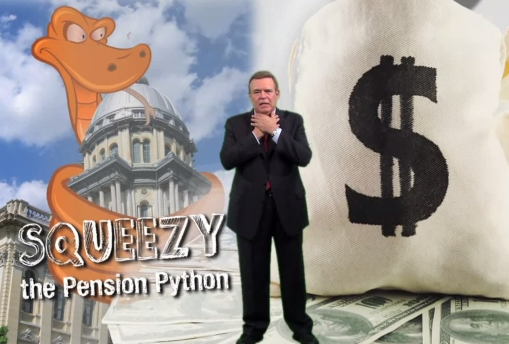
I spent a little time recently with the new report on Providence’s municipal pension plan, and then I read an article on golocalprov that wanted me to panic about it, quoting the usual chorus of scolds who want us to defund public services. Then I went back and read the report some more and I still don’t see why this report isn’t considered good news. It should be.
The report does point out that Providence has a funding ratio of around 32%, and this is low enough to be worrisome. But it also points out that the unfunded liability of the plan has fallen 8% as a result of Mayor Taveras’s pension reforms. The unfunded liability now stands at $830 million, down from $900 million a couple of years ago. Since the plan has assets of just a bit under $400 million, this seems scary, but it’s important to understand exactly what this number represents. It is the money you’d have to invest now in order to pay off all the debts of the plan in the future. In order to make a calculation like this, you have to make a lot of assumptions about the future: how long people will live, what the inflation rate will be, and what the investment returns are likely to be.
Critics in the golocal story claim that the investment return assumptions are high at 8.25%. The critics are wrong for a couple of reasons. First, it is important that this assumption be consistent with reality, but it is as important for it to be consistent with the other assumptions made. As for reality, over the long term, and accounting for inflation (which this number does), this actually is not a terrible guess. There are reasons to think that over the next few decades this is high, but over the last few, it’s been decent.

As for the other assumptions, critics who think this rate should be lowered, are generally not also suggesting that the inflation rate be lowered on the other side of the ledger, too. That is, this 8.25% investment assumption incorporates assumptions about the inflation rate in the future, but so do assumptions about the plan’s cost — i.e. the pension checks — 40 years from now. A big part of the reason we’re looking at low investment returns over the near term is because of low interest rates and low inflation. Lowering the investment assumptions should mean lowering the cost inflation assumptions, too, and yet, the Buffets, and Moody’s who demand more realistic investment assumptions are usually silent about those adjustments. Pension plans are not all about investments; there’s a reason why they are run by actuaries and not investment managers.
Another reason why we should be suspect of calls to lower the rate of return is that the scolds don’t generally account for the risk of overfunding a pension plan. Every dollar that goes into the pension fund is a dollar not spent on educating children or plowing city streets. It is far better to run the fund at a level modestly below 100% than it is to achieve or surpass that goal. I will never understand how people who rail against government waste will nonetheless insist that we put more money into a pension plan than is strictly necessary. To me, that seems the very definition of waste, but that’s the 21st century for you, I guess.
So what else is in the report? There’s a payment schedule that shows that although the payments to the plan are indeed going to go up in the short term, as a fraction of the city payroll, they go up very little, and this includes money put toward the unfunded liability. I see that last year, the income from the fund, plus the city’s payments, plus the contributions from current employees, was about $7 million short of the checks the system paid out. Red ink sounds bad, but these are calculations that involve repaying the investment losses of a couple of years ago. When you look at the actual flows of actual dollars, the system is well in the black over this past year.
The truth is that the payment schedule shown in the report is very optimistic, and the city could fall far behind that funding schedule (perhaps if the return assumption is too high, for example) and still make all the payments to retirees it anticipates. Remember, some of that unfunded liability won’t be paid until the youngest current city employee dies, say around 2075 or 2080, but the schedule in the report anticipates paying off the entire debt by 2040. The golocal story makes it sound like a 30-year amortization schedule is something unusual, though it is completely routine in the industry except for the plans that use a longer term.
What people routinely forget is to keep their eyes on the ball. The goal is not to satisfy some Olympian ideal of pension perfection as defined by Wall Street, the goal is to make all the promised payments at the lowest cost possible. The conventional wisdom of pension accounting ignores this goal, and imagines somehow that the city’s responsibility to its retirees so far trumps its responsibility to the children in its schools or the snow on its streets that overfunding the pension system is the only way to go. If Providence only makes it to 80% funding in 2040, short of the goal of 100%, pension checks will still be mailed out in 2041, just as they have been mailed out this year, when the funding ratio was so much smaller. If Providence were to short the pension payments and use that to improve the city’s economy, the pension plan might be more expensive in the future, but the city might be better able to accommodate the expense, too. There is balance necessary and the scolds who insist everything be pre-funded are no better than the past mayors who skipped payments.
The bottom line here is that Providence’s pension plan is a source of concern and requires careful consideration and monitoring over the next few years, but there is no reason to panic over these numbers. The pension reform seems to have helped substantially, and there is ample reason to think it will continue to help. Does that sound like cause for panic?



 Brett Smiley, running for the position of Mayor of Providence in this September’s Democratic primary isn’t letting the fact that he hasn’t been elected stop him from coming forward with some bold new initiatives.
Brett Smiley, running for the position of Mayor of Providence in this September’s Democratic primary isn’t letting the fact that he hasn’t been elected stop him from coming forward with some bold new initiatives.

